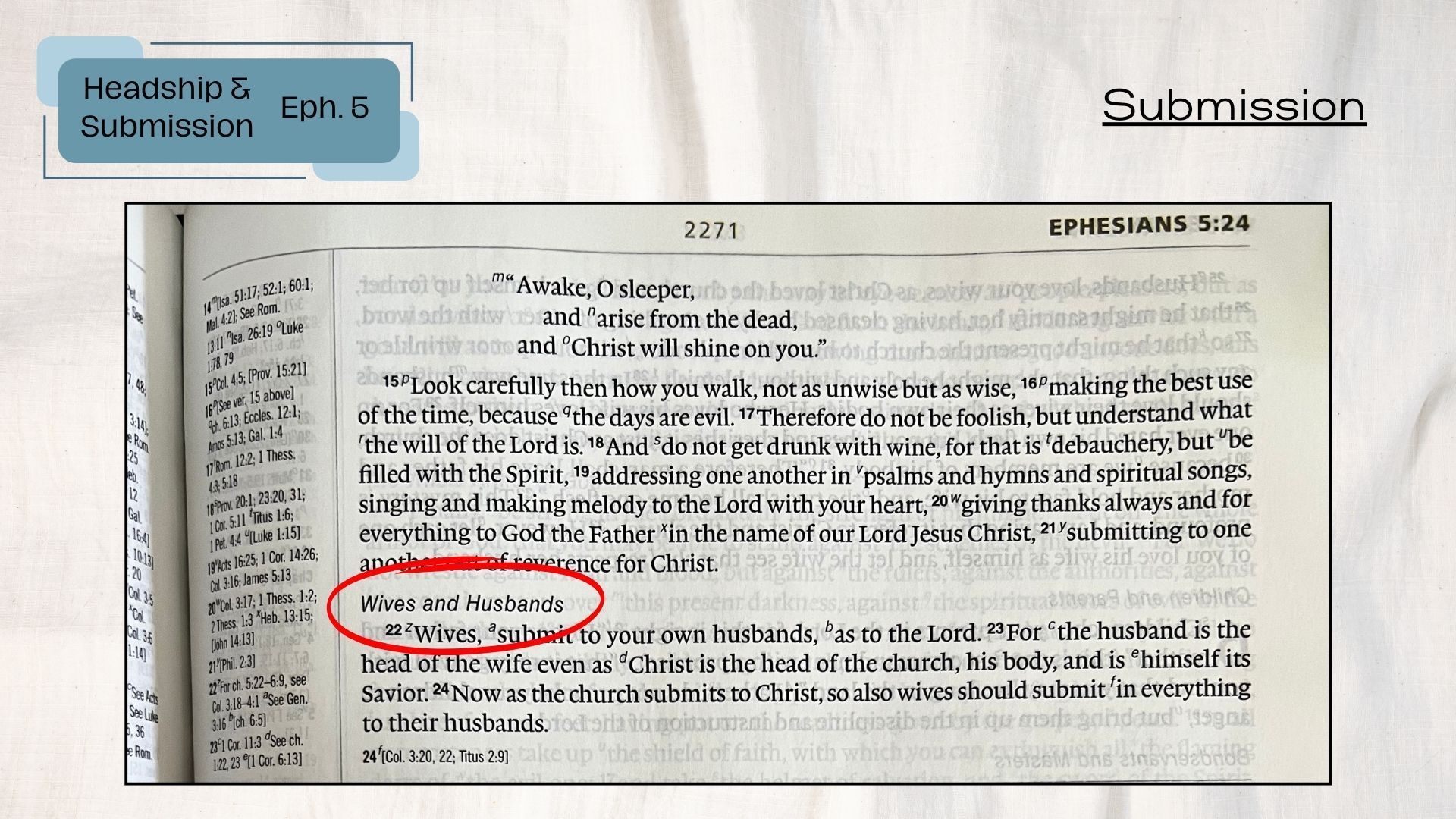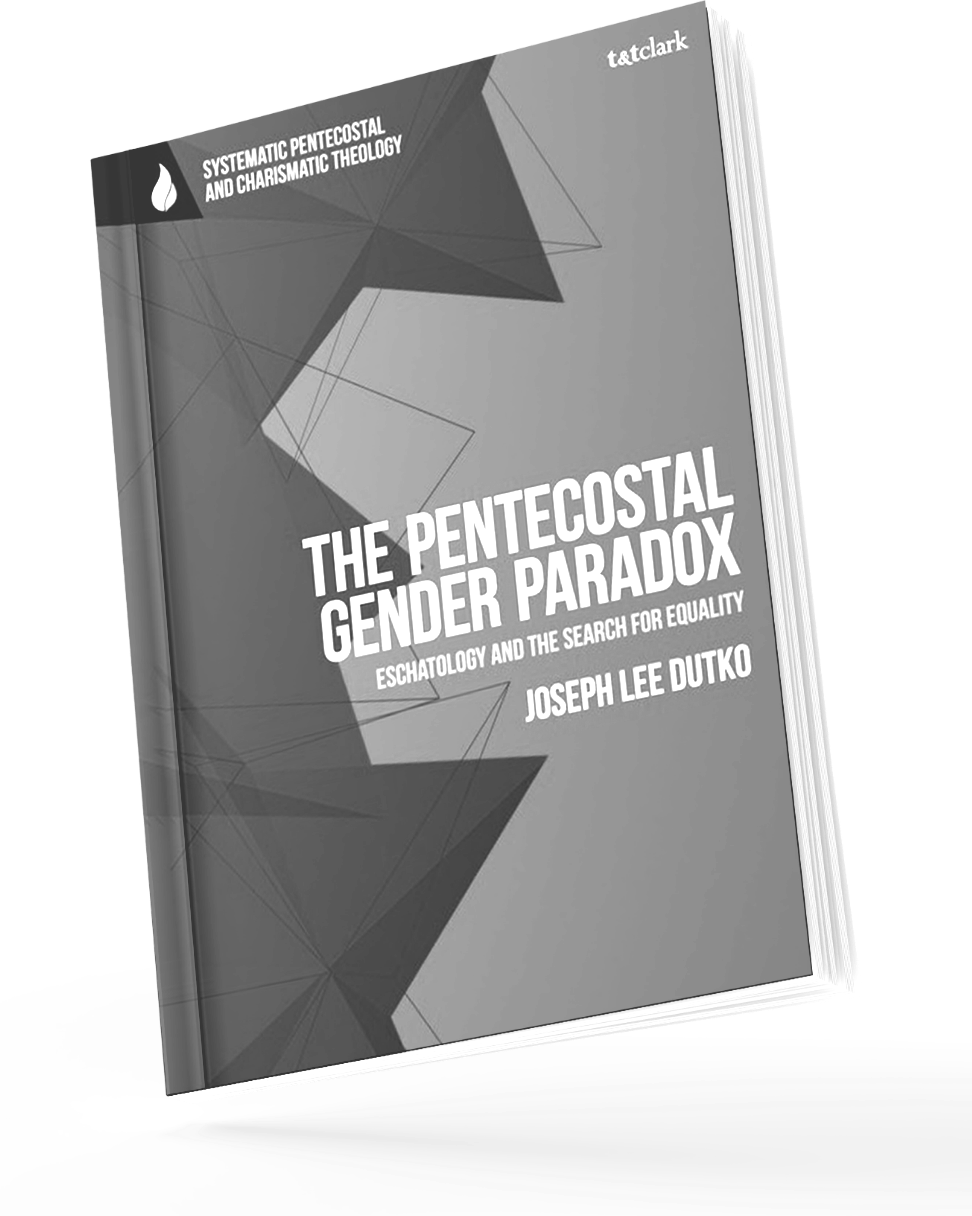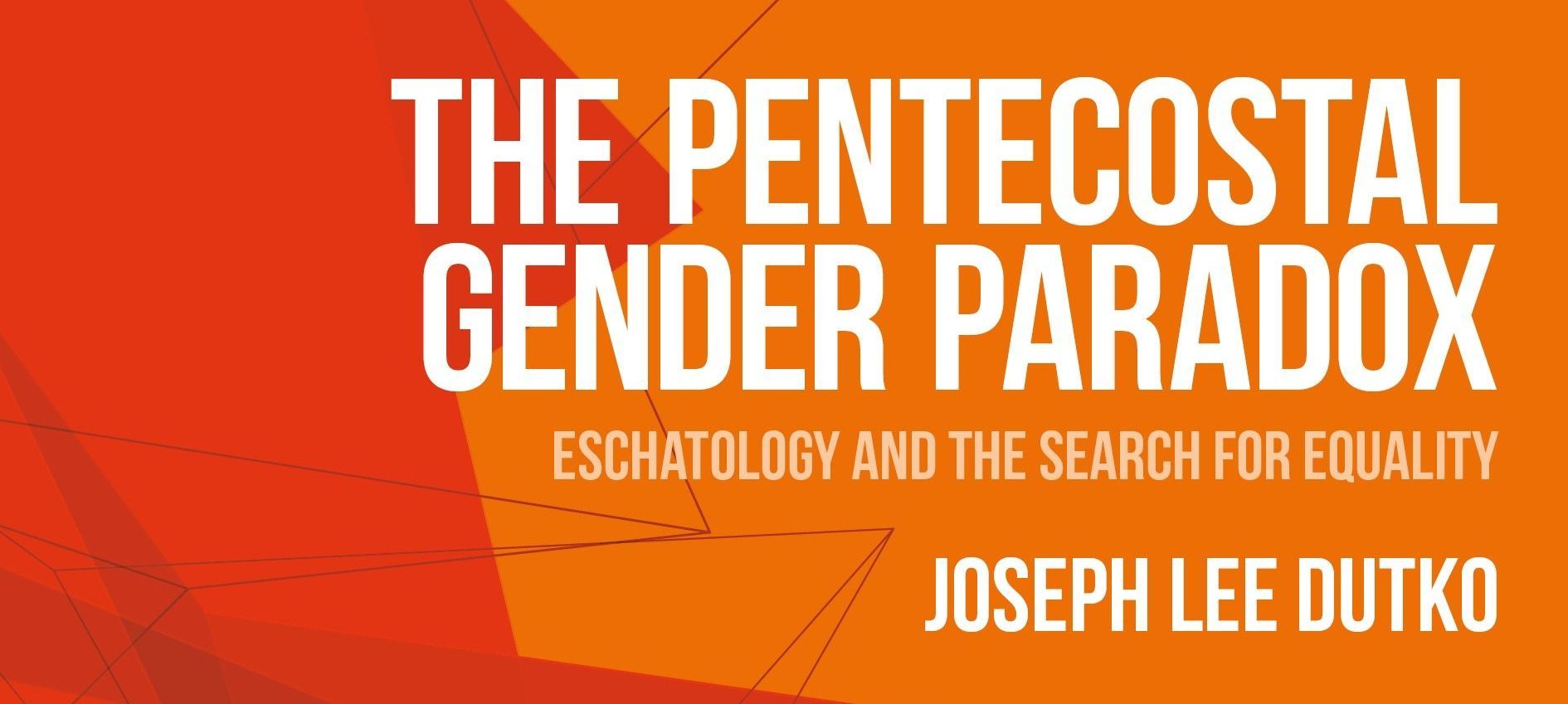The Most Important Submission in Ephesians 5 is . . .
How Male Bias in Bible Layout Influenced Interpretation of Ephesians 5:22
The e-book version of The Pentecostal Gender Paradox is out in 2 weeks!
One thing the book purposely does not do is wade into the waters of so-called problematic or controversial passages such as Ephesians 5:21-33 or 1 Timothy 2:8-15 and others like it such as 1 Corinthians 11 or 1 Corinthians 14:34-35.
The main reason is, as I argue, those passages become less relevant when understanding the hermeneutical priority of eschatological passages on gender.
The other reason is those passages have received SO MUCH scholarly attention, and great exegetical work and practical application already exists to help us understand and interpret them accurately. I refer the reader to many of those works in the appropriate places in the book.
However, most people in the pew have not been exposed to those works or in-depth analysis, so it's still needed and appropriate to teach on them in the church, which is exactly what Hannah and I recently did, which you can watch below or listen to HERE.
But the most important insight or place to start for those unfamiliar with the passage is to understand the relationship between verses 21 and 22.
vv. 21-22 say:
21 Submit to one another out of reverence for Christ.
22 Wives, submit yourselves to your own husbands as you do to the Lord.
Right away there’s something really important to notice here, and that is that v. 21 is the main thesis statement or heading of this passage and everything that follows is meant to be an explanation and fleshing out of v. 21.
And what do you notice about v. 21?
We are ALL called to submit to one another. Every Christian is called to submit.
You might be wondering, “why have I never noticed that before” or “why have I never been taught that?”
One reason is that unfortunately, due to male bias in Bible headings and layout—which are not original to the text by the way—historically, and until more recently, there was a heading break between vv. 21-22 in almost every Bible translation, as pictured below.

What this did is it disconnected the specific teaching in v. 22, that wives submit to husbands, from the more general admonishment in v. 21, as if v. 22 can stand alone.
And so what would happen, for example, is messages would get preached starting in v. 22. And here’s why we can say with confidence that v. 22 cannot stand on its own or be interpreted on its own:
The word submit (Greek, ὑποτάσσω) doesn’t even occur in v. 22! What?!
That’s a HUGE detail here that maybe you’ve somehow never heard.
The fact that the word submit doesn’t even occur in v. 22 but is only implied by v. 21 makes you wonder how Bible publishers ever decided to divide v. 21 and 22 with a heading. But the reality is men made all those decisions for centuries and at best weren’t being sensitive to how it would appear, and at worst were serving their own agenda.
But almost all Bibles today put the section heading before v. 21 because that’s what’s grammatically warranted, and you should be cautious with any translation that doesn’t (I won't mention them by name!).
The command in v. 22 is not an isolated teaching and certainly not a statement that can stand on its own in a vacuum. V. 22 is subordinate, must submit, if you will, to v. 21.
So perhaps the most important submission in Ephesians 5 is actually v. 22 to v. 21.
The most important submission happening in Ephesians 5 is the submission of v. 22 to v. 21!
This is significant because it proves the point that v. 22 is not a command that is to be only applied specifically to women. It is simply one of several selected examples, including for men, of the more specific command in v. 21 to submit to one another.
In other words, Paul didn’t sit down, inspired by the Spirit, and say “I want to talk about wives submitting to husbands, that’s really a core Christian teaching people need reminded of.”
No, his Spirit-led desire is to talk about mutual submission and love, and then, like any good writer, he includes some examples of how this might work or look like.
So a good way to think through this or translate this is to think of v. 21 as the thesis statement, the main heading or point that explains what follows it:
Thesis (main argument): “Submit to one another out of reverence for Christ” (v. 21)
→ Point 1: Here’s how wives can submit to husbands (vv. 22–24)
→ Point 2: Here’s how husbands can submit to wives (vv. 25–32)
Restate the thesis: mutual submission (v. 33)
This is a literary device quite common in the Bible of what’s called an inclusio, meaning a section that ends the same way it begins, which is supposed to help you interpret the meaning of everything said in between.
So Paul talks about mutual submission at the beginning, and then rephrases it at the end, which tells us that everything in between is about the topic of those two bookends.
This is why translations such the New Living Translation (NLT) accurately translates v. 22 starting:
“For wives, this means” with the “this” referring back to the submission of v. 21 ,
and then v. 25:
“For husbands, this means,” again referring back to the thesis of v. 21.
So v. 22 is simply Paul giving one real-life application or example of the more general principle of mutual submission encouraged in v. 21.
So we can and should say:
Biblically, should the wife submit to her husband? Yes.
Biblically, should the husband submit to his wife? Also Yes!
Watch the video for more explanation.
RELATED POST:
NEWSLETTER SIGNUP (blog post layout)
ABOUT JOSEPH
Pastor, Author, and sometimes pretends to be a Scholar
Joseph (PhD, University of Birmingham) is the author of The Pentecostal Gender Paradox: Eschatology and the Search for Equality.
Since 2015, he and his wife have together pastored Oceanside Community Church on Vancouver Island, where they live with their four children.










